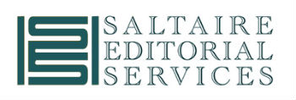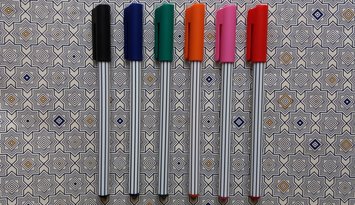|
Are you a natural diplomat? Or do you struggle to respond with sensitivity and tact, especially in stressful situations? And what does all this have to do with editing and proofreading? Diplomacy is never far from the headlines, whether it’s the Brexit negotiations, ceasefires in long-running armed conflicts, or international agreements on emissions targets. Even if negotiations don’t take place in the public eye, we know they’re happening and we can see the results (or lack thereof). Although such situations might seem rather remote from our daily lives, I think we probably all use more diplomacy on a day-to-day basis than we imagine. This was brought home to me recently by an incident involving a friend of mine (a fellow editor, although the situation wasn’t related to editing). This friend had managed to resolve a long-standing and seemingly intractable family problem by speaking separately, and with very well-chosen words, to each of the parties involved. The situation was quickly sorted out to everyone’s satisfaction. No one lost face, no one felt aggrieved, and no one was seen as ‘the bad guy’. I was seriously impressed with the way my friend had engineered this solution. It was pure genius! Now, I wouldn’t call myself a natural diplomat. Yorkshire folk have a reputation for plain speaking and bluntness, and that’s often not conducive to approaching situations in a calm, measured way. Add to that my tendency to try to make a joke out of everything and it’s safe to say that I’m not going to be leading international peace talks any time soon. But in the world of editing and proofreading – particularly the freelance variety – there are plenty of scenarios in which a pinch of diplomacy can go a long way.
Being a freelance editorial professional involves much more than the mechanics of editing and proofreading. As well as all the requirements of running a business – marketing, keeping on top of the accounts, planning and advertising, to name but a few – it involves building relationships. That’s where diplomacy comes in. It’s a question of taking a position, thinking about how rigidly you need to stick to it, considering the ramifications, and communicating effectively with others without causing offence or undermining your own position. Here are some common-sense tips.
Admittedly, these tips are unlikely to secure you a place at an international negotiation table, but you might find them useful in running your editorial business. And although diplomacy – like good editing – often goes unnoticed, your clients, colleagues and family members are still likely to appreciate it, and they’ll certainly notice if it’s absent!
0 Comments
“So, do you just read novels all day?”
I’m sure that’s a question many editors and proofreaders have been asked. Here, I describe some of the clients I’ve worked for over the years – including how I found them, or how they found me – to illustrate the variety of individuals, companies and other organisations who need editors and proofreaders. And because I work on non-fiction, academic and commercial material, there’s not a novel in sight. The Publisher Source of work: Speculative enquiries (letters and phone calls); Society for Editors and Proofreaders (SfEP) directory Publishers are probably the first clients that spring to mind when people think about editing and proofreading. And yes, in the early years of my career, all my clients were publishers. For one of them I worked on non-fiction books for the general reader, on topics including real ale, astrology, horse-race betting, wedding planning and feng shui. Another early publishing client introduced me to on-screen work (in the mid-1990s). These were very different experiences, but equally valuable. The EU Agency Source of work: SfEP directory Since 2003 I’ve worked for a small company on an editing contract with the European Training Foundation in Turin, Italy. It involves editing reports about vocational education and training – and related topics such as migration and the labour market – in EU partner countries. I love this work, although I’m slightly concerned about how it will be affected by Brexit… The Individual Author Source of work: Journal publisher’s website; SfEP directory; Colleague referrals Many of my individual clients are academics, most of whom do not have English as a first language. I help them to improve the language and formatting of their papers before submission to an academic journal. I’ve built up strong long-term relationships with a number of individual clients – both academics and general non-fiction authors – on several different continents. The Marketing Company Source of work: Local networking; SfEP directory; Colleague referrals These are often small firms who don’t have the in-house expertise required to edit or proofread their own or their clients’ material, or even to write such material in the first place. I’ve worked on web and brochure copy, as well as straplines and other brand-related text. The jobs can range from just a few words to pages and pages of copy, on pretty much any topic under the sun. The School Source of work: SfEP directory It’s important that student reports are well written and free from errors. Throughout the school year, I work on batches of reports for all the year groups at one particular school. I share this task with another proofreader, and wrote about this regular work in a previous blog post. Tight (and immovable) deadlines are the norm, but we both really enjoy working for this client. The Commercial Client Source of work: SfEP directory; Colleague referrals From greetings cards and novelty game instructions to product packaging of various types, this category encompasses a whole range of different material. In many cases there is only a small amount of text, but accuracy is of the utmost importance. The jobs I’ve done for these clients have mostly been small, one-off pieces of work, including some for high-street names. I suspect that many of us who have been editing and proofreading for a number of years (or even decades!) will have worked for a range of different clients. Of course, the list above is not exhaustive, but I hope it offers an insight into the range of clients who need the services of editors and proofreaders. When I began working as a freelance proofreader 20 years ago, I had no thoughts of expanding my horizons beyond the UK. My first client was based many miles away in the south of England, so I became used to working remotely. Hard-copy proofs arrived and were returned by post, discussions took place over the phone, and payment was made by cheque. But the idea that my work might have an international dimension probably didn’t occur to me, especially in the early days, before most people had internet access.
With the arrival of the internet, email made it possible to send and receive documents very quickly between countries. Editors and proofreaders were able to offer their services to clients in far-flung locations, and it was much easier for those clients to find an editorial professional using search engines and online directories. It seemed as though the world had opened up. Fast forward to the present. I edit journal articles for academics all over the world: my main academic client holds professorships on two different continents. I edit reports written in English for an EU agency based in Italy, via a company based in Spain. And I regularly work for clients in the Far East, the Middle East, Australasia, and all over Europe. (I also do still work for UK clients!) As well as having clients from across the globe, I’m now in touch – through social media – with editorial colleagues based in many different countries. I’ve found this to be an enriching experience, and one that has enhanced my perspective and given me a real insight into what’s happening in other countries, editorially speaking. I recently expanded my horizons even further: I attended my first overseas editing conference, the annual meeting of the Mediterranean Editors and Translators in Tarragona, Spain. I met editors and translators of different nationalities who are based in countries around Europe – and further afield. It was a reminder that editing, proofreading and other English language services are in demand across the globe. Long may that continue. UPDATE: I attended another Mediterranean Editors and Translators conference in September 2019, and wrote a blog post about the event. |
Categories
All
Archives
December 2022
|
Read my Privacy policy



